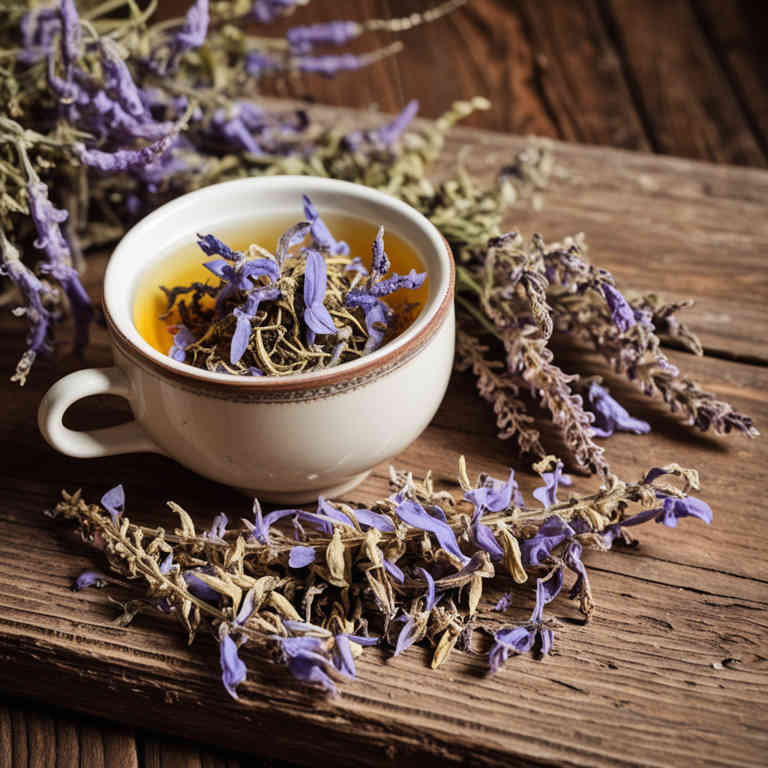Scutellaria baicalensis tea for medicinal use

Scutellaria baicalensis tea is a traditional herbal preparation made from the dried roots of the Scutellaria baicalensis plant, commonly known as Chinese skullcap.
This tea is widely used in herbalism for its potential anti-inflammatory, antioxidant, and antimicrobial properties. It is often consumed to support digestive health, reduce fever, and alleviate symptoms of anxiety or insomnia. In traditional Chinese medicine, it is valued for its ability to clear heat and detoxify the body.
The tea is typically prepared by steeping the dried roots in hot water and is consumed as a calming and restorative remedy.
Uses
Scutellaria baicalensis tea has been used to treat various ailments for centuries, particularly in traditional Chinese medicine.
Historically, it was valued for its ability to reduce fever, alleviate inflammation, and support liver health. In traditional practices, it was often used to treat conditions such as malaria and digestive disorders. Modern research has identified compounds like baicalin and wogonin, which contribute to its anti-inflammatory and antioxidant properties.
Today, it is commonly consumed as a herbal tea to support immune function and promote overall wellness.
Benefits
Scutellaria baicalensis tea has health benefits such as anti-inflammatory, antioxidant, and antimicrobial properties.
It is traditionally used in Chinese medicine to support respiratory and digestive health. The tea may help reduce fever and alleviate symptoms of inflammation due to its active compounds like baicalin and wogonin. It is also believed to enhance cognitive function and support the immune system.
Regular consumption of this herbal tea may contribute to overall wellness and aid in managing various health conditions.
Constituents
Scutellaria baicalensis tea active constituents include flavonoids, such as baicalin and wogonin, as well as essential oils and alkaloids.
These compounds are known for their antioxidant, anti-inflammatory, and antimicrobial properties. Baicalin and wogonin are particularly noted for their ability to neutralize free radicals and reduce oxidative stress in the body. The tea is often used to support liver function and promote overall immune health.
Its traditional use in Chinese medicine extends to treating conditions like fever, inflammation, and digestive issues.
Preparation
To make Scutellaria baicalensis tea, start by gathering dried roots of Scutellaria baicalensis, also known as Huang Qin.
Measure approximately 1 teaspoon of the dried root and place it in a pot or heatproof container. Add about 2 cups of water and bring it to a boil over medium heat. Reduce the heat and let it simmer for 10 to 15 minutes to allow the beneficial compounds to infuse into the water.
Strain the tea into a cup and enjoy it warm, optionally adding a small amount of honey or lemon for taste.
Side Effects
Scutellaria baicalensis tea may lead to gastrointestinal discomfort, including nausea, vomiting, and diarrhea, especially when consumed in large quantities.
It can also cause dizziness or headaches in some individuals due to its effects on the central nervous system. Long-term use may interfere with liver function, as some studies suggest potential hepatotoxicity. There is also a risk of interactions with medications, particularly those affecting the blood or the immune system.
As with any herbal remedy, it is important to consult a healthcare professional before use, especially for individuals with pre-existing medical conditions.